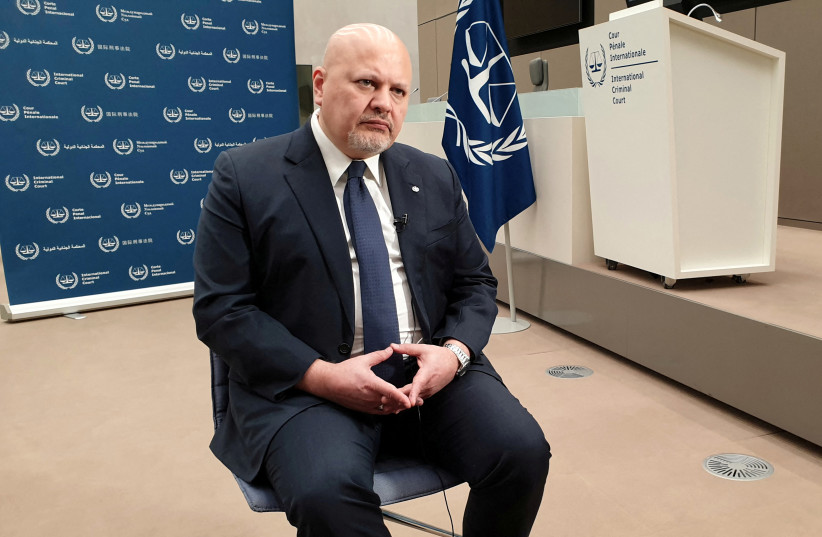In the eye of the storm: How will the ICC warrants affect Israel?
After hanging in the air for so long like a dark cloud, things finally came to pass on Monday when International Criminal Court (ICC) Chief Prosecutor Karim Khan announced his intention to seek arrest warrants for Prime Minister Benjamin Netanyahu and Defense Minister Yoav Gallant, as well as for Hamas’s top leaders, on charges of war crimes and crimes against humanity.
If approved by the ICC, Netanyahu would become the first Israeli leader threatened with arrest. This puts him among a small group of world leaders that the ICC has branded as international pariahs: Russian President Vladimir Putin, former Sudanese president Omar al-Bashir, and former Libyan president Muammar Gaddafi.
Israel rightly reacted with outrage to Khan’s announcement, condemning the comparison made between a democratic state and a terrorist group. Israel’s legal system is globally respected, while Hamas operates as a non-state actor without an independent judiciary. Over 100 Members of the Knesset from the coalition and opposition signed a statement on Monday condemning Khan’s announcement.
International law
One of the problems in this case is the lack of distinction between Israel and Hamas. Both have leaders accused of war crimes. But to compare Israel and its military response to Hamas’s attacks of October 7 is absurd and downright dangerous. What kind of a precedent does it set in international law?
The UN has for a long time been walking a tightrope in the court of Israeli and Jewish public opinion for its attacks on the Jewish State when many others seem deserving of the organization’s attention. The ICC – as an extension of the UN – is merely furthering the suspicion and mistrust that Israel levels at the UN.

Given the strained relationship of the past few months, the US also weighed in on the decision with a perhaps surprising level of support. US President Joe Biden and Second Gentleman Doug Emhoff, addressing Jewish community leaders at the White House, reinforced the administration’s commitment to Israel’s security and the Jewish people. “Let me be clear: we reject the ICC’s application for arrest warrants. There’s no equivalence between Israel and Hamas,” Biden said. “Contrary to allegations against Israel made by the International Court of Justice, what’s happening is not genocide. We reject that.”
The application for the issuing of arrest warrants will not make much difference to supporters and opponents of Israel and its politicians on either side of the fence, except to reinforce people’s already-held opinions.
Those convinced that Israel is committing the gravest desecration of human life since World War II will see the ICC’s move as proof that Israel’s actions against Palestinians are finally going to have consequences.
Those on Israel’s side who refuse to hear any criticism of Netanyahu will see the ICC’s move as an extension of the political witch hunt that has dogged him for years.
However, in the middle exists extremely shaky ground on which Israel must tread with great care, even if it dismisses the ICC’s case.
International isolation
The issuance of arrest warrants could further isolate Israel on the global stage, putting it in the same category as countries with leaders accused of severe human rights violations. This stigmatization can harm Israel’s diplomatic relationships. Countries that are parties to the Rome Statute might face pressure to arrest Israeli leaders if they travel abroad, leading to strained bilateral relations and potential diplomatic crises.
Having arrest warrants out for the sitting prime minister and defense minister can create internal political instability, affecting the government’s ability to address domestic and international issues effectively.
The legitimacy and moral standing of the Israeli leadership also seems certain to be questioned both at home and abroad.
The arrest warrants could also lead to calls for economic sanctions or boycotts against Israel, which would harm the economy. International investors may see increased risk in doing business with Israel, leading to reduced foreign investment and lower economic growth.
Israel has consistently maintained that it is operating within the laws of war and that it seeks to keep civilian casualties to a minimum while pursuing legitimate military objectives but this does not appear to have any effect on the ICC. For the court, it’s October 7 all over again.





Comments are closed.